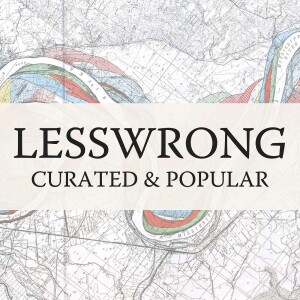
"Decision theory does not imply that we get to have nice things" by So8res
 2022-11-08
2022-11-08
https://www.lesswrong.com/posts/rP66bz34crvDudzcJ/decision-theory-does-not-imply-that-we-get-to-have-nice
Crossposted from the AI Alignment Forum. May contain more technical jargon than usual.
(Note: I wrote this with editing help from Rob and Eliezer. Eliezer's responsible for a few of the paragraphs.)
A common confusion I see in the tiny fragment of the world that knows about logical decision theory (FDT/UDT/etc.), is that people think LDT agents are genial and friendly for each other.[1]
One recent example is Will Eden’s tweet about how maybe a molecular paperclip/squiggle maximizer would leave humanity a few stars/galaxies/whatever on game-theoretic grounds. (And that's just one example; I hear this suggestion bandied around pretty often.)
I'm pretty confident that this view is wrong (alas), and based on a misunderstanding of LDT. I shall now attempt to clear up that confusion.
To begin, a parable: the entity Omicron (Omega's little sister) fills box A with $1M and box B with $1k, and puts them both in front of an LDT agent saying "You may choose to take either one or both, and know that I have already chosen whether to fill the first box". The LDT agent takes both.
"What?" cries the CDT agent. "I thought LDT agents one-box!"
LDT agents don't cooperate because they like cooperating. They don't one-box because the name of the action starts with an 'o'. They maximize utility, using counterfactuals that assert that the world they are already in (and the observations they have already seen) can (in the right circumstances) depend (in a relevant way) on what they are later going to do.
A paperclipper cooperates with other LDT agents on a one-shot prisoner's dilemma because they get more paperclips that way. Not because it has a primitive property of cooperativeness-with-similar-beings. It needs to get the more paperclips.
More Episodes
 2024-10-31
2024-10-31
 2024-10-28
2024-10-28
 2024-10-25
2024-10-25
 2024-10-15
2024-10-15
 2024-10-14
2024-10-14
 2024-10-14
2024-10-14
 2024-10-03
2024-10-03
 2024-09-30
2024-09-30
 2024-09-29
2024-09-29
Create your
podcast in
minutes
- Full-featured podcast site
- Unlimited storage and bandwidth
- Comprehensive podcast stats
- Distribute to Apple Podcasts, Spotify, and more
- Make money with your podcast
It is Free
- Privacy Policy
- Cookie Policy
- Terms of Use
- Consent Preferences
- Copyright © 2015-2024 Podbean.com




